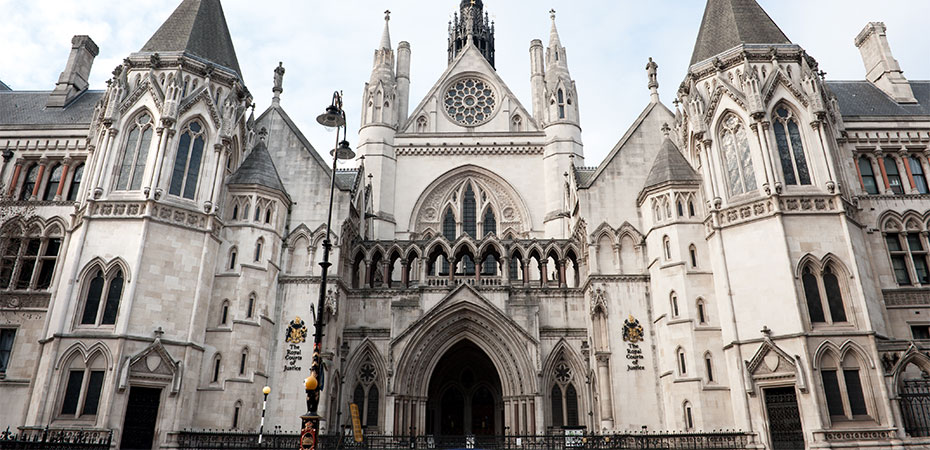The Court of Appeal’s decision in R (on the application of Campaign Against Arms Trade) v Secretary of State for International Trade presents a rare example of a successful challenge on rationality grounds.
The case concerned the Secretary of State’s refusal to suspend export licences for the sale of arms and military equipment to Saudi Arabia, some of which was used in the conflict in Yemen. CAAT was supported by Amnesty International, Human Rights Watch, Rights Watch UK and Oxfam[1] all of whom acted as interveners.
The government’s policy states that it will ‘not grant a licence if there is a clear risk that the items might be used in the commission of a serious violation of international humanitarian law [‘IHL’]’. Guidance at EU level states that in making that forward-looking assessment the recipient’s past and present record of respect for IHL is relevant. The government also has a statutory power to suspend licences once issued.
At first instance, CAAT argued that there was a large body of evidence that overwhelmingly demonstrated that Saudi Arabia had committed repeated and serious breaches of IHL during the conflict in Yemen. However, the Secretary of State had failed to make any assessment of whether or not any breach had taken place in respect of any individual incident or whether there was a consistent pattern of violations. CAAT argued that, if such an assessment were made, the only rational conclusion was that there was a pattern and that licensing should be suspended on that basis.
The Divisional Court noted that, although the nature of the decision required an intensive standard of review by the Court, this did not mean that it should stray into areas which are properly the domain of the executive in accordance with Parliament’s intentions.
The Divisional Court placed particular stress on the fact that the Secretary of State had a great deal of material at his disposal – presented in both open and closed sessions – from a range of government departments and experts. It concluded that the right questions had been asked and a rational decision made by the government to continue licensing.
CAAT’s main argument on appeal was that the Secretary of State’s decision to continue licensing of arms to Saudi Arabia was irrational on the basis that he had failed to properly consider Saudi Arabia’s past and present record of respect for IHL. This was a breach of the Tameside duty to ask the right questions and gather the information needed to answer them before coming to a decision.
The Court of Appeal noted that judicial review is confined to the lawfulness of a decision and not its political merits. In order for a rationality challenge to succeed, it is necessary to show that no reasonable authority could have been satisfied on the basis of the enquiries that it made and not merely that further enquiries would have been desirable or sensible.
However, in this case that high threshold was met. The Court of Appeal held that the question of whether there was a historic pattern of breaches of IHL by Saudi Arabia had to be answered.
The Court rejected the government’s argument that it could not make an assessment in that regard as it was not a party to the conflict and therefore had imperfect information, or that it would be inappropriate to come to a view if it could. The Secretary of State had argued that he was in a better position to analyse the issues than other bodies such as the UN or NGOs like the interveners (all of whom had taken the view that there were breaches of IHL). The EU guidance also called specific attention to past violation of IHL as a relevant consideration when assessing whether there was a real risk of future violation. He could not then say that he could not or should not make such an assessment.
The Secretary of State had also argued that part of his assurance as to Saudi Arabia’s compliance with IHL rested on the training and support that the UK government provided in that regard. However, the Court of Appeal pointed out that he could not reach a rational conclusion as to whether such training and support was actually having its intended effect without assessing past and current compliance with IHL.
The Court of Appeal was clear that it was not considering whether or not breaches of IHL had actually taken place in the past, or whether there was a real risk of such breaches in the future. That was a matter for the Secretary of State. However, it was a question that he needed to answer.
Once he does so, the Secretary of State will then need to reconsider whether or not to suspend existing licences in relation to arms sales to Saudi Arabia and whether to grant any new licences. More broadly, as the Court of Appeal has clarified the approach to licensing in general, the IHL compliance of other countries to which UK arms and military equipment are exported should also be assessed.
On the day the judgment was given Liam Fox, the Secretary of State for International Trade stated that the government would apply for permission to appeal. However, the Court of Appeal has in this case simply applied established and unchallenged principles of public law, so it will be interesting to see whether the Supreme Court grants any application to appeal or whether the government is forced to live with this decision.
Footnotes
[1] We acted for Oxfam, both before the Divisional Court and Court of Appeal.
